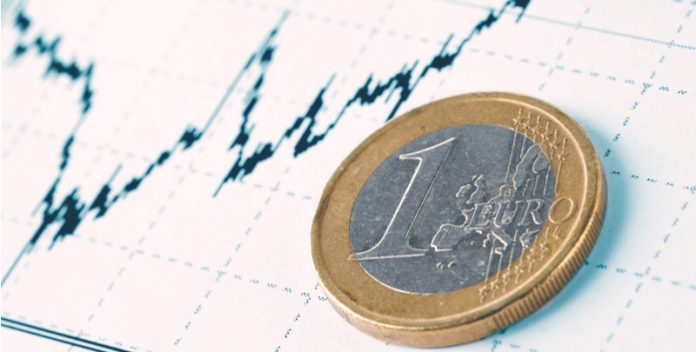It has been a relatively quiet start to what promises to be a busy week. Wednesday is set to begin a wave of potentially high impact economic data.
Nevertheless, euro traders did have some early figures to digest. Thanks to a surprisingly strong data release from Germany, the euro has the upper hand versus the pound. The euro strengthened, pushing the pound-euro exchange rate down to a session low of €1.1289 on Monday, before climbing marginally to finish at €1.1300.
| What do these figures mean? |
|---|
|
When measuring the value of a pair of currencies, one set equals 1 unit and the other shows the current equivalent. As the market moves, the amount will vary from minute to minute. For example, it could be written: 1 GBP = 1.13990 EUR Here, £1 is equivalent to approximately €1.14. This specifically measures the pound’s worth against the euro. If the euro amount increases in this pairing, it’s positive for the pound. Or, if you were looking at it the other way around: 1 EUR = 0.87271 GBP In this example, €1 is equivalent to approximately £0.87. This measures the euro’s worth versus the British pound. If the sterling number gets larger, it’s good news for the euro. |
There was little in the way of economic data to direct the pound in the previous session. Instead investors shifted their gaze to suggestions that Brexit is heating up and UK Prime Minister Theresa May’s weakening position in power. On Monday, May’s calls for more cross party cooperation looked like a rather desperate plea for political stability which weighed on the pound.
| How does political stability boost a currency? |
|---|
| Political stability boosts both consumer and business confidence, which means corporations and regular households alike are more likely to spend money. The increased spending, in turn, then boosts the economy. Foreign investors prefer to invest their money in politically stable countries as well as those with strong economies. For foreign investors to put their money into an economy, they need local currency. As they acquire the money needed, the demand for that particular currency increases, which then boosts its value. |
Today is again short on economic data, instead two Bank of England (BoE) officials could be grabbing the headlines and moving sterling. Recent BoE rhetoric has been pointing towards an interest rate hike sooner rather than later. However, given the weak economic data released from the UK last week, continued support of a rate hike seems questionable at best. Should the BoE speakers sound more cautious following the softer data last week, then interest rate expectations could ease, pulling the pound lower.
| Why do raised interest rates boost a currency’s value? |
|---|
| Interest rates are key to understanding exchange rate movements. Those who have large sums of money to invest want the highest return on their investments. Higher interest rate environments tend to offer higher yields. So, if the interest rate or at least the interest rate expectation of a country is relatively higher compared to another, then it attracts more foreign capital investment. Large corporations and investors need local currency to invest. More local currency used then boosts the demand of that currency, pushing the value higher. |
Large German trade surplus boosts Euro
Meanwhile the euro was in favour after the German trade surplus surged in May from €18.1 billion to €22 billion. Germany is reaping the benefits of a stronger global economy, which is in turn positively impacting the German export economy. A stronger economy means a stronger currency. As a result the euro has picked up to a two week high versus the pound.
Interestingly, despite all the positive data that is being released from the eurozone, there are still signs of uncertainty among traders. The index of investor confidence fell slightly from 28.4 to 28.3 in July. This marginal dip could be attributed to persistent uncertainty as to how the European Central Bank (ECB) will approach monetary policy for the remainder of the year.
Today provides little for euro traders to sink their teeth into, with Wednesday’s industrial production figures the next high-influencing numbers.
|
This article was initially published on TransferWise.com from the same author. The content at Currency Live is the sole opinion of the authors and in no way reflects the views of TransferWise Inc. |





